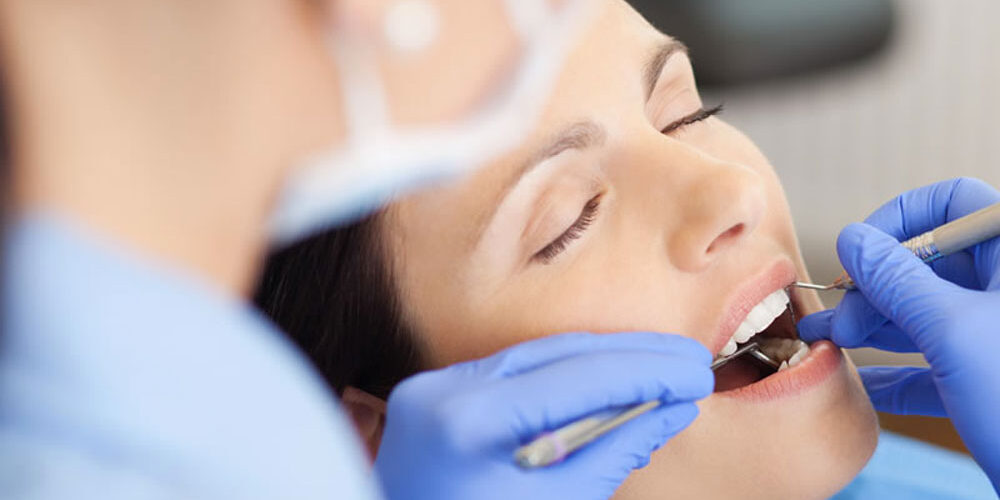
Dental treatment under anesthesia: Is it possible?
In the dental treatment process, the area to be treated with local anesthesia is usually numbed and the tooth becomes insensitive to pain. However, people with dentist phobia cannot have dental treatment even under local anesthesia. The method of dental treatment under general anesthesia is an alternative solution for people who are timid about dental treatment, who cannot have the procedure because of the gag reflex or who have phobias. Today, if deemed necessary by dentists, dental treatment procedures can be performed by putting patients to sleep.
Sedation and Dental Treatment Under Anesthesia
Sedation dental treatment is a way to help patients with high anxiety or fear of the dentist to have a more comfortable experience. In this procedure, the patient’s consciousness is partially suppressed and medications with a sedative effect are used. This makes the treatment process less stressful and more comfortable.
What Are The Types of Sedation Applied in Dentistry?
There are 3 types of sedation in dentistry. These are classified as conscious, medium and deep sedation.
Conscious Sedation:
This is the type of sedation in which patients respond to verbal commands, their breathing is not affected and they do not experience a complete loss of consciousness.
Moderate Sedation:
A type of sedation in which patients can respond to light touch or loud commands without touch.
Deep Sedation:
It is a type of sedation in a deep sleep state that does not react to any stimuli. Deep sedation method is mostly preferred in pediatric patients.
Should I Have Dental Treatment Under Anesthesia?
If you have a phobia of dentists and cannot have your dental treatments done comfortably or if you are struggling with toothaches by avoiding treatment, you can do research for places that perform dental treatment with sedation. Postponing dental treatments can lead to larger procedures and high costs in the future. With sedation, both dentists and patients have a much more comfortable dental treatment process.
In Which Patients Can Sedation Be Applied?
Adult patients or pediatric patients with excessive nausea, gag reflex during dental treatment are preferred to be sedated. In this way, dentists do not have difficulty during treatment and a comfortable treatment process is created for both parties.
In Which Cases Is Sedation Dental Treatment Not Applicable?
As with any treatment, there are some situations where sedation treatment cannot be applied:
- Patients who do not comply with the fasting period,
- Patients with serious lung and heart disease,
- In patients with respiratory distress,
- Patients with a history of sleep-disordered breathing,
- Patients with a cold, fever, ear infection or stuffy nose
sedation treatment is not preferred.

Dental treatment under anesthesia can also be applied in pediatric patients.
What to Consider Before Sedation?
Eating and drinking should be restricted before sedation. The purpose of restrictions is usually to reduce the risk of aspiration. Aspiration can cause stomach contents to escape into the respiratory tract. Therefore, before sedation, an adult patient should stop consuming solid food. At least 6 hours before sedation (4 hours in pediatric patients) and liquids 4 hours before sedation.
Patients with a smoking habit should not smoke after the fasting hour before sedation.
Where Are The Cases Where Dental Treatment Is Performed With Sedation?
Sedation is a state of sleep in which all reflexes are preserved with the drugs applied by the anesthesiologist and depth control is also performed. The sedation method, which is highly preferred in dental treatment, is a suitable method especially for people with dentist phobia. Dental treatment with sedation is a much more common method abroad. It is a treatment that is applied almost everywhere in our country, especially in Istanbul, but has not become more widespread. Sedation is not practiced in Istanbul state hospitals. General anesthesia can be performed in some university hospitals for pediatric patients.
We are one of the few polyclinics that provide sedation dental treatment method, which is the most appropriate and effective method to overcome the fear of dentists caused by traumas. You can contact us for detailed information.
How Long Does Sedation Dental Treatment Take?
According to the procedures performed, the time required for the treatments to be performed varies. Although dental treatment with sedation varies depending on the number of procedures to be performed, it takes an average of 1-2 hours. Depending on the nature of the procedures, this period varies shorter or longer.
Prices For Sedation Dental Treatment
The prices of sedation dental treatment, which has the effect of reducing the fears of patients, also vary according to the place. Accordingly, depending on the preferred dentist, polyclinic, type of procedure to be performed and the amount of the procedure to be performed, sedation dental treatment prices are determined at different levels.
In children, especially when sedation is preferred, it is aimed to treat all problematic teeth in the mouth. Here, the treatment procedures are not paid session by session. Instead, all procedures are paid at once. When dental treatment by sedation is preferred, only the cost of the sedation procedure will be added to the treatment fees.
According to the price list announced by the Turkish Dental Association, a price change was made in dental treatments in July 2023. If you want to have sedation dental treatment with both a quality treatment and affordable price ranges, do not forget to get more detailed information by contacting our Istanbul dental clinic. For more information, don’t forget to check our article on dental tourism in Turkey.
